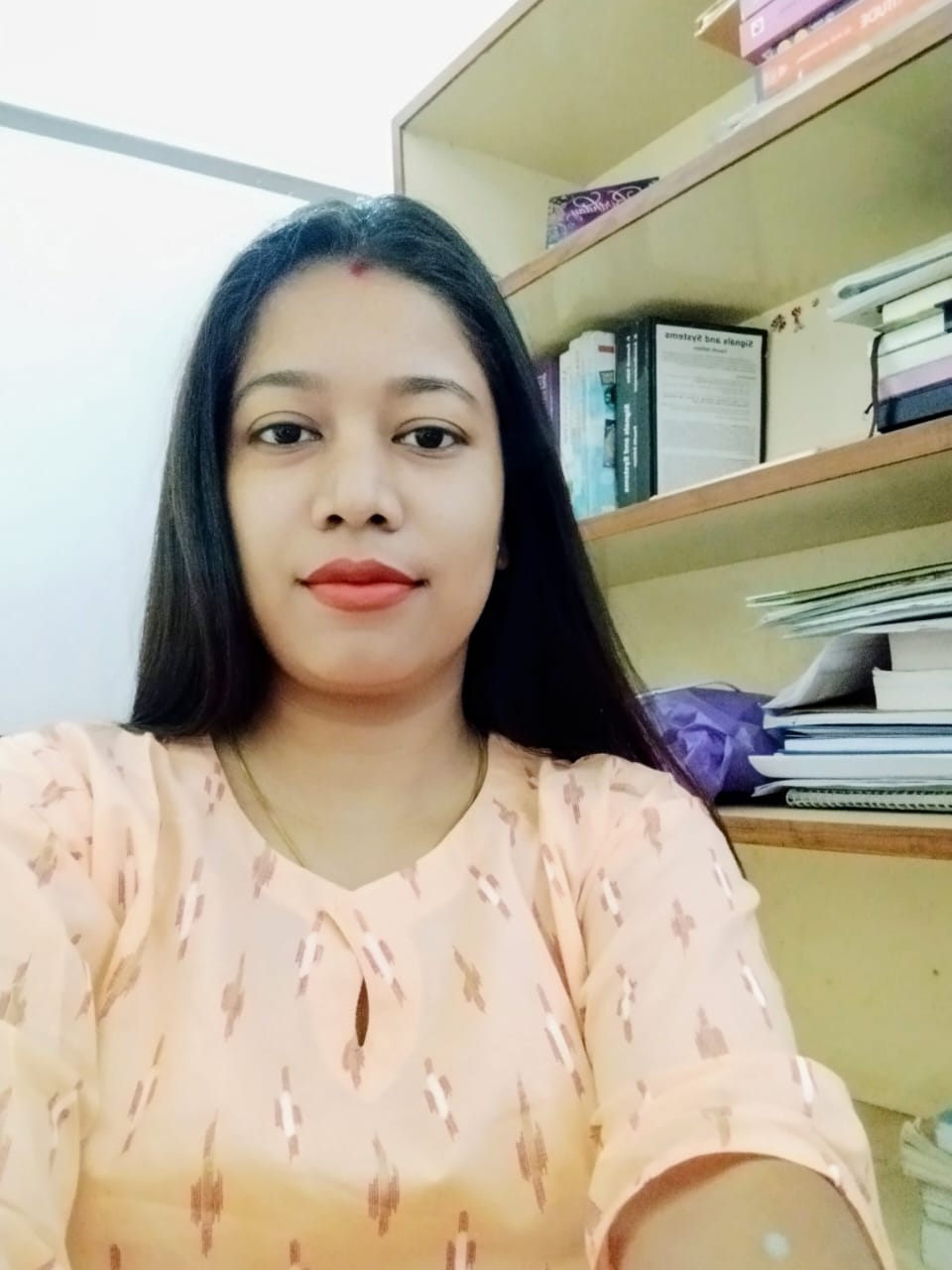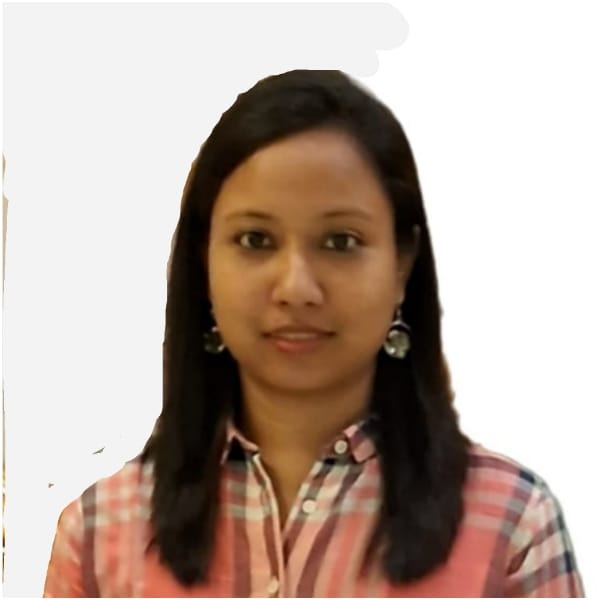- Vision & Mission of the Department
- PEOs & PSOs of the Department
- About ETC Engg Department
- Course Structure
- Faculty
- Syllabus
- Laboratories
- Activities of the Dept.
VISION AND MISSION OF ELECTRONICS & TELECOM ENGINEERING DEPARTMENT
VISION
To be a centre of excellence in the field of Electronics and telecommunication Engineering to meet the needs and challenges of the growing demands of the society.
MISSION
- To impart technical knowledge and skills in Electronics and Telecommunication Engineering fields.
- To provide employment generation training addressing the societal needs
- To carry out research and project work to meet the growing challenges of the industry.
- To inculcate qualities of team work as well as social, interpersonal skills.
PROGRAMME EDUCATIONAL OBJECTIVES (PEOs):
PEO 1: To prepare students to succeed in employment / profession and to pursue undergraduate education in Electronics and Telecommunication discipline.
PEO 2: To make competent technicians in Electronics and Telecommunication industry to carry out fabrication and testing in a team or as an individual.
PEO 3: Apply basic conceptual knowledge of mathematics, science and engineering to install, maintain and troubleshoot Electronics and Telecommunication equipments.
PEO 4: The students will be able to lead a successful professional and personal life with ethical and social responsibilities.
PROGRAM SPECIFIC OUTCOMES (PSO)
PSO 1: Identify/analyse Electronics and Telecommunication problems and find solution in circuits, hardware, programming &/or networking. (ENGINEERING SKILLS).
PSO 2: Select appropriate hardware and software tools to develop circuits / hardware. (ENGINEERING TOOLS)
PSO 3: Test, debug and troubleshoot solutions to the problem and provide assistance to identify and solve problems. (PROBLEM ANALYSIS / LIFE LONG LEARNING)
The Electronics & Telecommunication Engineering Department is the most resourceful department in the Institute. The department was started in 1984 to produce quality technician in the field of Electronics & Telecommunications. The department has been strengthened under the Project Impact (1991 to 1997). Under this project all the faculty and staff members of the department has been trained in various fields and the laboratories have been modernised. The Department has ten laboratories, a departmental library and a Model Class Room with audio-visual facilities. The yearly intake of the department is 40 for regular three-years Diploma course. In addition to the regular course, the ETC department runs various short-term external courses in the field of Electronics and Computer under the Sustainability Support Scheme (SSS). The resource generated from these courses are used to meet the expenditures for the maintenance/up gradation of the Lab equipments, industrial training of the students, training of staff and other departmental purposes.
In the year 2001, AEI has been certified ISO 9002 to conduct Three-Years Diploma Course and Short-term courses by the Department of Electronics & Telecommunication Engineering.
Courses Offeres: 3 year Diploma in Electonic and Telecommunication Engineering
CURRICULUM REVISION
With an objective to implement NEP 2020 in Higher Education and the State
Polytechnics, with effect from the academic session 2024-25 a framework is
designed for the transformation of the entire Technical Education (TE) in order to
respond to the requirements of fast-changing and knowledge-based Indian society.
Salient features that were considered for developing the curriculum aligned to
NEP 2020 are as follows:
▪ Reduced number of credits.
▪ Introduction of Student Induction Program.
▪ Well defined learning objectives & outcomes for each course.
▪ Inclusion of courses on socially relevant topics.
▪ Built-in flexibility to the students in terms of professional elective and open
Elective courses.
▪ Mandatory internship to equip the students with practical knowledge and
provide them exposure to real time industrial environments.
▪ Virtual Labs.
▪ Mapping of Courses to its equivalent NPTEL/SWAYAM Course.
▪ Course on ‘Entrepreneurship and Startups’ to encourage entrepreneurial
mindset.
▪ Introduction of Design Thinking and Universal Human Value course.
Structure of Diploma Program: The structure of Diploma program has the
following categories of courses with the breakup of credits as given:
Sl.No.
Category
Credit Breakup
1
Humanities and Social Sciences including Management
courses
9
2
Basic Science courses
23
3
Engineering Science courses including workshop,
drawing,
basics of electronics/electrical/mechanical/computer etc.
10
4
Professional core courses
47
5
Professional Elective courses relevant to chosen
specialization/branch
8
6
Open subjects – Electives from other technical and /or
emerging Subjects
9
7
Project work, seminar and internship in industry or
elsewhere
14
8
Mandatory Courses
[Environmental Sciences, Induction Program, Indian
Constitution, Essence of Indian Knowledge Tradition]
Non-Credit
Total
120
| Sl.No. | Category | Credit Breakup |
| 1 | Humanities and Social Sciences including Management courses | 9 |
| 2 | Basic Science courses | 23 |
| 3 | Engineering Science courses including workshop, drawing, basics of electronics/electrical/mechanical/computer etc. | 10 |
| 4 | Professional core courses | 47 |
| 5 | Professional Elective courses relevant to chosen specialization/branch | 8 |
| 6 | Open subjects – Electives from other technical and /or emerging Subjects | 9 |
| 7 | Project work, seminar and internship in industry or elsewhere | 14 |
| 8 | Mandatory Courses [Environmental Sciences, Induction Program, Indian Constitution, Essence of Indian Knowledge Tradition] | Non-Credit |
| Total | 120 |
Course structure:-
| Sl.No | Code No. | Subject | StudyScheme (Contact hours/week) | Evaluation Scheme | |||||||||||
| Theory | Practical | TotalMarks(Theory+Practical) | Credit | ||||||||||||
| L | T | P | ESE | Sessional (SS) | Pass(ESE+SS) | PracticalTest (PT)# | Practical Assessment(PA) @ | Pass (PT+ PA) | |||||||
| TA | HA | Total (TA+HA) | |||||||||||||
| 1 | Co-301 | Computer Application & Programming | 3 | 3 | 70 | 10 | 20 | 30 | 33/100 | 25 | 25 | 17/50 | 150 | 4 | 1 |
| 2 | Hu-302 | Engineering Economics & Accountancy | 3 | – | 70 | 10 | 20 | 30 | 33/100 | – | – | – | 100 | 3 | 2 |
| 3 | Sc-303 | Mathematics-III | 3 | 1 | – | 70 | 10 | 20 | 30 | 33/100 | – | – | – | 100 | 3 |
| 4 | El-304 | Elements of Electrical Engineering | 3 | – | 3 | 70 | 10 | 20 | 30 | 33/100 | 25 | 25 | 17/50 | 150 | 4 |
| 5 | Et-305 | Analog Electronics-I | 3 | – | 3 | 70 | 10 | 20 | 30 | 33/100 | 25 | 25 | 17/50 | 150 | 5 |
| 6 | Et-306 | Electronic Workshop-I | – | 1 | 6 | – | – | – | – | – | 100 | 50 | 50/150 | 150 | 4 |
| 7 | Et-310 | Professional Practice- I | 1 | 2 | – | – | – | – | – | 25 | 25 | 17/50 | 50 | 2 | 7 |
| TOTAL | 35 | 850 | 25 | ||||||||||||
| Sl.No | Code No. | Subject | StudyScheme (Contact hours/week) | Evaluation Scheme | |||||||||||
| Theory | Practical | TotalMarks(Theory+Practical) | Credit | ||||||||||||
| L | T | P | ESE | Sessional (SS) | Pass(ESE+SS) | PracticalTest (PT)# | Practical Assessment(PA) @ | Pass (PT+ PA) | |||||||
| TA | HA | Total (TA+HA) | |||||||||||||
| 1 | El-401 | Electrical Circuit & Network | 3 | – | 3 | 70 | 10 | 20 | 30 | 33/100 | 25 | 25 | 17/50 | 150 | 4 |
| 2 | Et-401 | Communication Engineering-I | 3 | – | 3 | 70 | 10 | 20 | 30 | 33/100 | 25 | 25 | 17/50 | 150 | 4 |
| 3 | Et-402 | Electronics Test & Measurements | 3 | – | – | 70 | 10 | 20 | 30 | 33/100 | – | – | – | 100 | 3 |
| 4 | Et-403 | Digital Electronics | 3 | – | 3 | 70 | 10 | 20 | 30 | 33/100 | 25 | 25 | 17/50 | 150 | 4 |
| 5 | Et-404 | Electronic Workshop-II | – | – | 6 | – | – | – | – | – | 50 | 50 | 33/100 | 100 | 4 |
| 6 | Et-405 | Analog Electronics-II | 3 | – | 3 | 70 | 10 | 20 | 30 | 33/100 | 25 | 25 | 17/50 | 150 | 4 |
| 7 | Et-410 | Professional Practice-II | 1 | – | 2 | – | – | – | – | – | 25 | 25 | 17/50 | 50 | 2 |
| TOTAL | 36 | 850 | 25 | ||||||||||||
| Sl.No | Code No. | Subject | Core/ Elective | StudyScheme (Contact hours/week) | Evaluation Scheme | |||||||||||
| Theory | Practical | TotalMarks(Theory+Practical) | Credit | |||||||||||||
| L | T | P | ESE | Sessional (SS) | Pass(ESE+SS) | PracticalTest (PT)# | Practical Assessment(PA) @ | Pass (PT+ PA) | ||||||||
| TA | HA | Total (TA+HA) | ||||||||||||||
| 1 | Et-501 | Communication Engineering-II | C | 3 | – | 3 | 70 | 10 | 20 | 30 | 33/100 | 25 | 25 | 17/50 | 150 | 4 |
| 2 | Et-502 | Microprocessors | C | 3 | – | 3 | 70 | 10 | 20 | 30 | 33/100 | 25 | 25 | 17/50 | 150 | 4 |
| 3 | Et-503 | Power Electronics | C | 3 | – | 3 | 70 | 10 | 20 | 30 | 33/100 | 25 | 25 | 17/50 | 150 | 4 |
| 4 | Et-504 | PC System Technology | C | 3 | – | 3 | 70 | 10 | 20 | 30 | 33/100 | 25 | 25 | 17/50 | 150 | 4 |
| 5 | Et-505 | Electronic Circuit Troubleshooting | C | – | – | 6 | – | – | – | – | – | 50 | 50 | 33/100 | 100 | 4 |
| 6 | Et-510 | Professional Practice-III | C | 1 | – | 2 | – | – | – | – | – | 25 | 25 | 17/50 | 50 | 2 |
| 7 | – | Elective (Any One) | 3 | – | – | 70 | 10 | 20 | 30 | 33/100 | – | – | – | 100 | 3 | |
| A | Et-506 | Computer Aided Electronic Design | E | A | ||||||||||||
| B | Et-507 | Electronic Instrumentation | E | B | ||||||||||||
| C | Et-508 | PCB Technology | E | C | ||||||||||||
| D | Et-509 | Control Systems | E | D | ||||||||||||
| TOTAL | 36 | 850 | 25 | |||||||||||||
| Sl.No | Code No. | Subject | Core/ Elective | StudyScheme (Contact hours/week) | Evaluation Scheme | |||||||||||
| Theory | Practical | TotalMarks(Theory+Practical) | Credit | |||||||||||||
| L | T | P | ESE | Sessional (SS) | Pass(ESE+SS) | PracticalTest (PT)# | Practical Assessment(PA) @ | Pass (PT+ PA) | ||||||||
| TA | HA | Total (TA+HA) | ||||||||||||||
| 1 | Hu-601 | Industrial Management & Entrepreneurship | C | 3 | – | – | 70 | 10 | 20 | 30 | 33/100 | – | – | – | 100 | 3 |
| 2 | Et-601 | Consumer Electronics | C | 4 | – | – | 70 | 10 | 20 | 30 | 33/100 | – | – | – | 100 | 4 |
| 3 | Et-602 | Data Communication & Networking | C | 3 | – | 3 | 70 | 10 | 20 | 30 | 33/100 | 25 | 25 | 17/50 | 150 | 4 |
| 4 | Et-603 | Microcontroller & Embedded Systems | C | 3 | – | 3 | 70 | 10 | 20 | 30 | 33/100 | 25 | 25 | 17/50 | 150 | 4 |
| 5 | Et-611 | Project & Seminar | C | – | 1 | 6 | – | – | – | – | – | 100 | 50 | 50/150 | 150 | 3 |
| 6 | Et-612 | General Viva | C | – | 2 | – | – | – | – | – | – | 50 | – | 17/50 | 50 | 2 |
| 7 | Et-610 | Professional Practice-IV | C | 1 | – | 2 | – | – | – | – | – | 25 | 25 | 17/50 | 50 | 2 |
| 8 | – | Elective (Any One) | 3 | – | – | 70 | 10 | 20 | 30 | 33/100 | – | – | – | 100 | 3 | |
| A | Et-604 | Medical Electronics | E | |||||||||||||
| B | Et-605 | Modern Communication Systems | E | |||||||||||||
| C | Et-606 | Microwave Techniques | E | |||||||||||||
| D | Et-607 | Industrial Electronics | E | |||||||||||||
| E | Et-608 | Digital Signal Processing | E | |||||||||||||
| F | Et-609 | Advanced Microprocessor | E | |||||||||||||
| TOTAL | 34 | 850 | 25 | |||||||||||||
Faculty and Staff
| Sl.No. | Name | Qualification | Designation | Publications | Training (Last 3yrs) | Photo Identity |
| 1 | Mrs. Pallavi Chowdhury | M.Tech | Head of the Department | Nil | 1.National Board of Accreditation 2. Soft skills developments |
 |
| 2 | Mr. Bhabananda Deka | M.Tech | Lecturer(S.G.) | |||
| 3 | Mr. Pirbakash Ali | M.Tech | Lecturer(S.G.) | Nil | Microprocessor and microcontroller |
 |
| 4 | Violina Deka | B.Tech (Tezpur University) | Lecturer | 3 |
 | |
| 5 | Dr. Parismita A Kashyap |
B.E (Gauhati University)
M.Tech (Tezpur University) Ph.D ( Assam Don Bosco University) | Lecturer |
Patent-1 Journals & Conferences-11 Book Chapters-2 |
Year 2025-26 1. One-Week FDP on “Introduction to Indian Knowledge System” by NITTTR Kolkata 2. 1st International “Workshop on Indigenous Sensors and Actuators Development for IoT Ecosystem” organized by C-DAC, Kolkata & North East Year 2024-25 1. AICTE ATAL FDP on Chip: Design, Fabrication, Packaging and Testing at Assam Engineering College Year 2023-24 1. NPTEL Online Certification for the 8 weeks Course “Analog Electronics” 2. AICTE ATAL FDP on “Modeling, Simulation, and Fabrication of Future Electronic Devices” at Assam Engineering College 3. NEP Orientation and Sensitization Programme by Malaviya Mission Teacher Training Centre at IUCAA, Pune 4. 5 days “Advanced Workshop on Renewable and Sustainable Technologies”, organized by IIT Guwahati-Technology Innovation and Development Foundation (TIDF) |
 |
| 6 | Ridhi Bardoloi | B.E, M.Tech | Lecturer | 2 | 3 |
 |
Electronics and Telecommunication Engineering Syllabus
| 1ST SEMESTER SYLLABUS(NEW) | View / Download |
| 2ND SEMESTER SYLLABUS(NEW) | View / Download |
| 1ST SEMESTER SYLLABUS(OLD) | view / download |
| 2ND SEMESTER SYLLABUS(OLD) | view / download |
| E.T.C. ENGINEERING , 3rd to 6th SEMESTER | view / download |
ETC Engineering Department Laboratories:
- Analog Electronics Lab.
- Digital Electronics Lab.
- Power Electronics Lab.
- Communication Engg. Lab.
- Consumer Electronics Lab.
- Electronic Workshop
- DIY(do it yourself) Lab
- Computer Lab – I
- Computer Lab – II
- Data communication and Engineering Lab
- Computer Hardware Lab.
Other Cells of the Department:
- Departmental Library
- Self-Maintenance Cell
- Electronic Store
The Electronics and Telecommunication Engg department was established in the year 1984. The department has well equipped laboratories, well trained staffs, excellent infrastructure and resources. The various projects that have been implemented so far are:
- IMPACT(Industry Oriented ManPower and Appropriate Competence and Training) was successfully implemented by the Ministry of Information Technology(MIT), Govt of India jointly with the World Bank and the Swiss Agency for Development and Cooperation(SDC) at selected 14 engineering colleges and 12 polytehnics(Electronics stream) during 1991-97. The project provided critical financial and technical inputs for improvement of learning environment and for producing high quality products.
- EGTS(Employment Generation Training Scheme) sponsored by Ministry of Communication and Information Technology, Govt of India. EGTS was initiated to impart technical training to educated unemployed youths of North East India to enable them become self-employed.
- SSS(Sustainability Support Scheme) sponsored by Ministry of Communication and Information Technology, Govt of India.SSS has been implemented in order to absorb, adopt and institutionalize the gains of project IMPACT with the objectives of sustaining the quality of education and training of engineering students in the field of electronics and computer.
- MODROBS(Modernization and Removal of Obsolescence) sponsored under the Ministry of Human Resource Development, Govt of India for modernization and removal of obsolescence. Many laboratories under upgraded under this scheme Eg. Analog Electronics Lab, Electronic Workshop, Data Communication and Networking Lab, Computer Hardware Lab, Computer Application Lab.
Co-Curricular Activities
- Technical Seminar And Quiz
- Technical Wallmagazine
- Technical Workshop
- Industrial Visits
















Pic: our student at ALL INDIA RADIO,Guwahati for industrial visit

Pic: our student at cultural rally participation

Pic: our student at IOCL Noonmati,Guwahati for industrial visit

Pic: our student at North-East Calibration and Testing laboratory ,Guwahati for industrial visit


Pic: our student at Numaligarh Refinery Limited ,Golaghat for industrial visit


